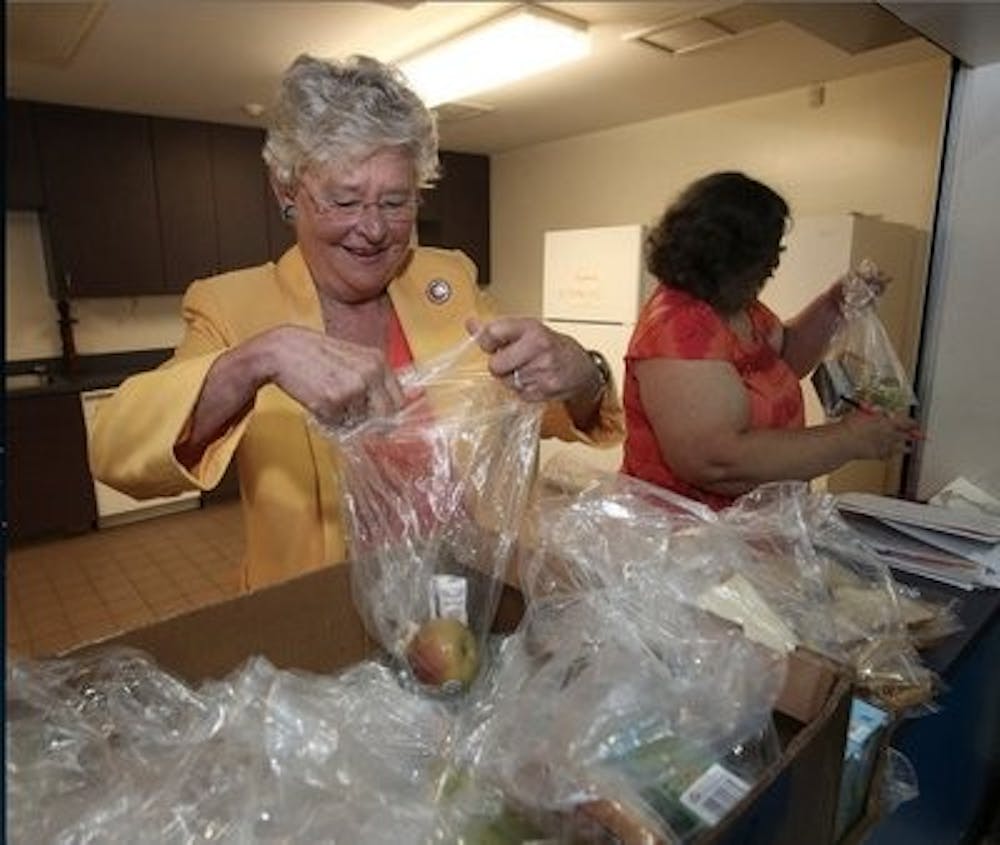Lt. Gov. Kay Ivey, accompanied by others representing the "Ending Child Hunger in Alabama" task force, spoke at the Sonny Callahan Boys & Girls Club.
The task force was assembled in the fall of 2012 as one of the first initiatives of the Hunger Solutions Institute (HSI), in coordination with state government.
"One in three children in Alabama are suffering from what we call food insecurity," said June Henton, dean of the College of Human Sciences at Auburn and the executive director of HSI. "The issue of child hunger is a big one across the world."
Henton said the task force was formed in September 2012 with the hopes of making Alabama a leader in the efforts to combat child hunger and food insecurity in the United States.
"As a land-grant university, we are supposed to serve this state, nation and world," Henton said.
Hunger and food insecurity is a worldwide problem, but there have been recent improvements in providing food to those who need it, according to Paula Gray Hunker, director of policy and strategy for HSI.
"The good news is that the levels are going down," Hunker said. "A few years ago, one billion people were hungry, and now it's down to 875 million. It's improvement, but there's more to do."
Domestically, the food insecurity rates are higher in Alabama than the rest of the country. Currently, Alabama is in the bottom quartile in terms of food insecurity rates.
The solution to this issue, according to both Henton and Hunker, lies in getting communities and private sector organizations to understand the fight against hunger is a burden the entire community must share.
"In the next seven years, we are hoping for Alabama to be one of the 25 best states when it comes to food insecurity for children," Henton said.
Ivey and others involved in the task force appeared at the Boys & Girls Club as part of the regional roll out for the campaign. The location is one of several spots utilizing food services options from the Bay Area Food Bank, which is partnering with state government and HSI.
The Bay Area Food Bank serves 24 counties in Mississippi, Florida and Alabama, and has recently set up a feeding site in the Tuscaloosa area to help provide food to children facing food insecurity.
"Our goal with the task force is to find solutions and to get the state-wide numbers to the national average," said Dave Reaney, executive director of Bay Area Food Bank. "And right now, that is to focus on rural counties."
The Bay Area Food Bank expanded to Tuscaloosa this summer to provide lunch for children who, without the benefit of having school in session, would be hungry without assistance.
The new model, according to both Reaney and Hunker, focuses on using University resources to feed children who are in need, especially during the summer.
"Up through high school, school cafeterias run nine-month schedules, and it is very expensive to reopen the kitchens," Hunker said. "University dining options are open year-round and would be much more cost effective. It's a great model."
As a result, Hunker has been in contact with Auburn dining facilities about expanding these feeding sites to Lee County youth next year, as an example for other organizations around the world.
Through cooperation from HSI, Bay Area Food Bank, and the state and federal government, progress is being made.
"These children are the future," Hunker said. "And we owe it to them to give them what they need, in terms of nutrition, to succeed."
Do you like this story? The Plainsman doesn't accept money from tuition or student fees, and we don't charge a subscription fee. But you can donate to support The Plainsman.





